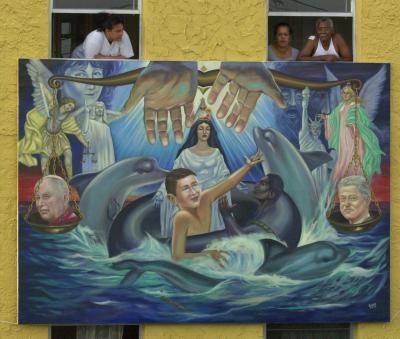Catching a cold in Cuba
Trip to beautiful island offers harsh lessons about shortages of medicine, food and transportation
By SALLY MELCHER JARVIS, Correspondent
Sunday News
Published: Dec 30, 2007 12:08 AM EST
HAVANA, CUBA - It wasn't much of a cold; just the kind that would get better by itself in a week. In the meantime it was a nuisance with a cough and stuffy nose. A little over-the-counter remedy would help.
It was November 2007. We were in Havana, the capital of Cuba, with a humanitarian group organized by the North Museum of Natural History & Science. Our role was to bring medical and school supplies in our suitcases. Americans are allowed in Cuba; they aren't permitted to spend any money there. We prepaid for our trip including every meal and tip.
There were no over-the-counter remedies to be had. I asked the guide what Cubans did if they had a cold. The guide said that a Cuban would go to the doctor — a visit free of charge — who would write a prescription for aspirin. However, there would be no way to fill the prescription.
We visited a pharmacy later in the trip. Behind the counter five well-dressed Cuban women waited to serve, but the shelves were empty. The only items in sight were the monthly ration of sanitary napkins, 10 permitted per Cuban woman per month.
I then understood the value of the over-the-counter medical supplies we had brought to a Catholic charity.
It was like being in a dream where two different things can happen at the same time. We were in a two-tier system: one for the privileged (tourists, for example) and the other for those who lived and worked in socialist Cuba.
Our luxurious state-owned hotel was closed to Cubans, except for those who worked there. A Cuban could not even come in for a meal.
There were two levels of money. One, the CUC, was used by foreign tourists and convertible to other currencies. The other, the peso, was for Cubans, and worth 5 percent of the "better" currency.
There were two levels of stores, one that took pesos and another that took CUC money. The peso stores had very little to sell. The stores for CUC money were marginally better. Even a modest chain store in the United States could outshine the "better" store.
There certainly were no traffic jams. With few privately owned cars and limited public transportation, many people rely on hitchhiking. In one five-mile stretch of a major highway I counted 20 people hoping for rides. In the same five-mile stretch the traffic consisted of one taxi, one bus, one pedestrian, two horse-drawn carts, three motorcycles, seven cars, 11 bicycles and 13 pickup trucks. This included both sides of the four-lane highway. About 15 percent are 1950s-era American cars still using leaded gas.
Coupons are given out each month for food such as coffee and rice. The coupons run out after two weeks, so it is necessary to buy food with the monthly salary. Food at the farmers' market is expensive. So if a person does not use the coffee ration, that coffee is traded for something else
On balance, we saw no people sleeping in doorways. We learned that there was 95 percent literacy. There was no rent to pay, no medical insurance needed — but no aspirin.
Cuba is a beautiful country with limestone soil as rich as Lancaster County and a mild climate year-round. The people are friendly, well-dressed and polite. Havana is a stunning Spanish colonial city with tree-lined plazas and colonnaded homes. If only the windows were not patched, the pillars rotted and the faded walls stained with mildew. The government has restored a number of homes, but the overall effect is one of decay.
The decay and lack of merchandise are blamed on the American embargo, in place since 1960. One wall poster in a cigar factory called the American embargo "genocide." Our country's story in Cuba is not an admirable one. Still, I wondered if a socialist government in 50 years could not come up with something better for its people.
It was depressing to see attractive and intelligent people restricted and denied opportunity in such an appealing land only 90 miles away from our country.
The accident of birth has put me in a free country and I have never been so grateful.
"Nobody is in agreement…It’s that, no one says it and no one takes the risk to say it, to speak the truth. That’s what is happening. In other words, one of the foundations, of what are the regimes in the entire world, in all of history, has been fear and lies. In other words, once you are in fear that's when you don’t take a risk, where you collect yourself and don’t unite…understood? To be in fear is not to offer help to anyone because that signifies risk." -Gorki Águila Carrasco, lead singer, guitarist of the music group Porno Para Ricardo and political prisoner
"Socialist ideology, like so many others, has two main dangers. One stems from confused and incomplete readings of foreign texts, and the other from the arrogance and hidden rage of those who, in order to climb up in the world, pretend to be frantic defenders of the helpless so as to have shoulders on which to stand." --Jose Marti

View Che Guevara's Forgotten Victims on Scribd
SEARCH? GOOGLE IT!
Thursday, January 3, 2008
DESOLATION
Posted by
AMERICA'S FREE PRESS
at
5:59 PM
![]()
Labels: Apartheid, aspirin, Cuban healthcare, Health care, medicine, shortages, tourism
Subscribe to:
Post Comments (Atom)





No comments:
Post a Comment